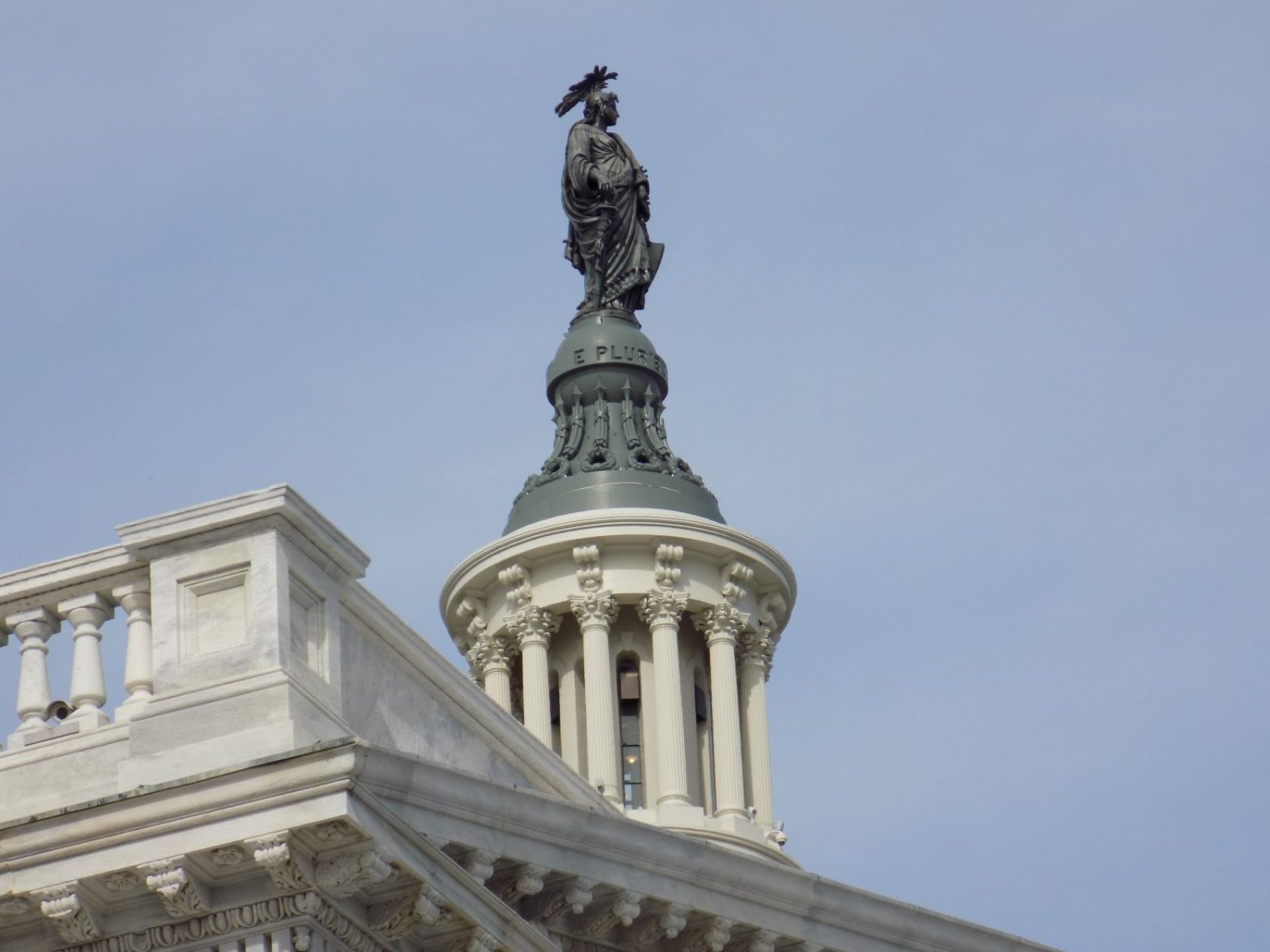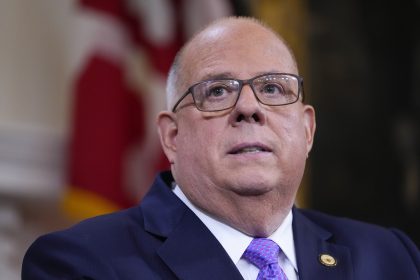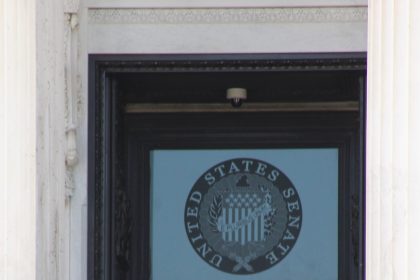Academics Weigh Filibuster’s Role Following Voting Bills’ Obstruction

WASHINGTON — Republicans in the Senate have succeeded repeatedly in thwarting the passage of both the Freedom to Vote Act and the John R. Lewis Voting Rights Advancement Act, legislation crafted to overhaul the country’s election systems and secure Americans’ rights to easy poll access.
GOP lawmakers have relied heavily on the filibuster to do so — a procedural maneuver to delay or block a vote on legislation or confirmations that requires 60 votes to overcome. The filibuster was not part of the Senate’s rules at first but was created as an unintended consequence of then-Vice President Aaron Burr’s suggestion to eliminate rules deemed redundant or not significantly useful.
At Burr’s urging, Senators in 1806 eliminated a rule that automatically cut off floor debate, known as the “previous question motion.” This cleared a path for the use of the delaying tactic decades later, Caroline Fredrickson, distinguished visitor from practice at Georgetown Law and senior fellow at the Brennan Center for Justice, told The Well News.
Filibustering in modern times no longer requires hours of continuous speech. A senator needs only to inform the floor leader of their intent to block a vote until 60 senators agree to override the filibuster and invoke cloture.
“There was what’s known as a motion to call the question — it’s sort of a typical motion in a parliamentary democracy that allows the end of debate to be brought to a close,” Fredrickson said. Burr eliminated the motion, which wasn’t an issue in the Senate, where concluding debates wasn’t a problem, said Fredrickson. “There wasn’t really huge amount of legislating going on in the same way that happens now.”
Fredrickson continued, “So they were just kind of cleaning up and getting rid of what seemed to be superfluous types of rules. But it set the stage for the adoption of the filibuster later, when they were in fact not able to bring debates to a close because they didn’t have the sort of standard motion to call the question.”
Although the filibuster was used sparingly for some time after its accidental creation, determined Senate minorities began ramping up the practice in the 1960s in attempts to block civil rights legislation, Fredrickson told The Well News.
“That’s really when it became a significant factor in the Senate,” she said.
Certain provisions of the revised version of the voting rights bill named for the late Rep. John Lewis, D-Ga., were specifically tailored in response to measures included in the Voting Rights Act of 1965 becoming invalidated through subsequent U.S. Supreme Court rulings, TWN previously reported. Multiple iterations of the voting rights legislation have already passed the filibuster-devoid House of Representatives in votes along partisan lines.
Subsequently, a now-bipartisan delegation of lawmakers is attempting vigorously to adopt provisions that counter efforts in states controlled by Republicans that make it harder for minorities to vote, Fredrickson said. Just as the southern Democrats did at the inception of the Voting Rights Act, the Republican minority in the Senate is blocking new legislation that would strengthen the landmark civil rights bill.
Because the filibuster was not established by the framers of the Constitution, it could theoretically be done away with or reformed, should Sens. Joe Manchin, D-W.Va., and Kyrsten Sinema, D-Ariz., simply agree to do so. In January, committee memberships were held over from the last year’s congressional session until Senate Republican Leader Mitch McConnell received assurances from Manchin and Sinema that they would continue to support the 60-vote threshold needed to preserve the filibuster.
Josh Chafetz, professor of law at Georgetown University, told The Well News in a statement, “[The] filibuster is a significant outlier in how legislative chambers work both domestically and internationally.”
“I think the odds of the legislative filibuster being eliminated in this Congress are quite low. Both Manchin and Sinema have made it pretty clear that they oppose getting rid of it, and they would both need to be on board,” Chafetz said. “In general, I suspect that a party would need at least 53 or 54 seats to get rid of the filibuster. And of course, they’d have no incentive to do so unless they also controlled the House and the presidency.”
Thomas Jipping, deputy director of The Heritage Foundation’s Meese Center for Legal and Judicial Studies, contends that the Senate was always intended to be a more deliberative body than the House and “to play a different role in the legislative process,” he said on the podcast Heritage Explains. Further, Jipping explained the filibuster exists as a critical impediment to preventing “incredibly radical proposals” from being rammed through the Senate with no challenge.
Jipping’s justification for the filibuster is that the Senate was designed as a deliberative body meant to check the impulses of the House in order to protect the rights of the minority and promote bipartisan compromise. The Senate rule that requires a supermajority to end debate gives the minority party more influence and encourages deliberation, he wrote in a Heritage Foundation op-ed.
Eliminating the filibuster would do more than alter “some arcane procedural rule,” John Cooper, acting director for media at The Heritage Foundation, said in commentary defending the filibuster. Doing so would change “the Senate into another version of the House, where raw majorities rule, where compromises are unnecessary, and where the passions and prejudices of the moment often overcome reason and sound judgment.”
Staunch proponents of the rule continue to point to it as a vehicle for “compromise and moderation,” just as President Joe Biden did as a senator in remarks from 2005. However, Fredrickson said this rationale lacks proper substantiation in reality and diminishes the inherent democratic principles of the Constitution.
“Look at the Senate — where have you seen compromise?” Fredrickson told The Well News. “I don’t think you find compromise anywhere. Clearly, it’s a very weak argument, because there’s no evidence to support it. Actually, compromise would be achieved by making a situation where the parties actually had to negotiate with each other. Right now, with the filibuster structure as it is, the Republicans just block things. They have no need to actually talk to the Democrats at all. They can block things without consultation.”
Fredrickson continued, “If the Democrats could pass things with a simple majority, then the Republicans would start talking to them and thinking about how they could craft legislation that they would like, and work together. You would have people working across the aisle to try and develop proposals that they could all support. None of that’s happening now.”
Reece can be reached at [email protected]






















